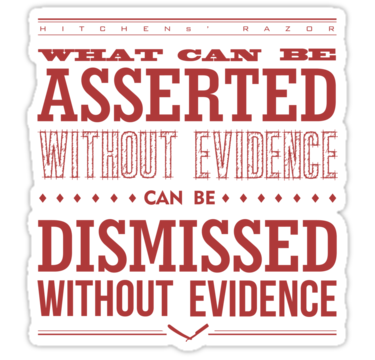In the study of philosophy, a Razor is a Rule of Thumb that is used to “shave off” unnecessary explanations. Essentially, eliminating unnecessary explanations helps in avoiding unnecessary actions. While the theory that the simplest option is most likely the solution propagates naivete, and is often a setback to scientific explanations, in philosophy even Newton has given birth to a razor very unlike his usual deductions (this razor is about his unusual deductions!)
So, here are the top 5 Razors that made it to my “Hall of Razor Fame”, or simply, “Let ’em Razor Eyebrows”:
- Hanlon’s Razor: An aphorism that is all-the-more-relevant in an era of F.O.M.O. It is especially helpful when you think someone’s behavior is inexplicable. If you feel that someone is going out of their way to be snarky towards you, step back and think of Hanlon’s Razor: “Never Attribute to Malice That Which Can be Attributed to Stupidity.”

2. Occam’s Razor: In the simplest of terms, Occam proposes that the more assumptions you have to make, the more unlikely (and less plausible) is the theory. This is not just applicable to philosophy, but across a variety of studies, disciplines, and physics! Of two options, the one having lesser assumptions is more likely! While this seems like an aphorism, it is a widely contested theory.

3. Newton’s Flaming Laser Sword (Alder’s Razor): A Flaming Laser Sword imbibing Newtonian thought (Humorously called Flaming laser sword because it is “sharper” and “more dangerous” than a razor). Its weakest link states that unless there are observable consequences proved by precise logic or mathematics, propositions have no basis. At its best, Newton’s Razor demands comprehensive observable consequences and a formal demonstration that prove that the consequences are indeed consequences of the proposition claimed. Essentially, anything that cannot be seen/ proved by experimentation, is not up for debate.

4. Hitchens’s razor – A man so savage, he could make a razor based on something very average. Acerbic, dry, and catty, Hitchens oozes sass. Let it never be forgotten that logic can be convoluted enough to make it seem something it’s not.
“Forgotten were the elementary rules of logic, that extraordinary claims require extraordinary evidence and that what can be asserted without evidence can also be dismissed without evidence” — Christopher Hitchens.
Hitchens drily pronounced that the burden of proof of a claim lies with the one who made it, nothing more, nothing else.

5. Grice’s Razor: Paul Grice expertly predicts how lazy our futuristic conversations will be. An atmosphere of understanding through incomplete sentences and an overall disjointed harmony will predominate our conversations, hence, his words ring very true: “Conversational implications are to be preferred over semantic context for linguistic explanations.” An example of this:
Karen: Will you come to the wedding?
Susan: Let me get my dress ready!
(There was no real answer to the question, but the implication is clear in the context)

And the 6th one for good measure is the Duck Test. The philosophical and empirical test proves (after much deliberation and analysis) that if it looks like a duck, swims like a duck, and quacks like a duck, then it probably is a duck.
Caveat: Even if you don’t live by them, use them in the next debate you have to come off as intellectual (and hope that your opponent does not Google what you say).
Let me know your favorite razors in the comments!


PLEASE follow my blog
LikeLiked by 1 person
Thank you for the explanation and inspiration
LikeLiked by 1 person
Thank you! That’s the zone I was going for
LikeLike
I believe I see #6 being used a lot. Yet, we know people are much more complex than that.
LikeLike